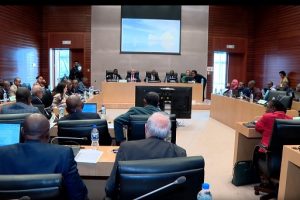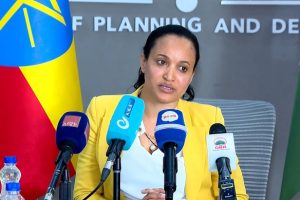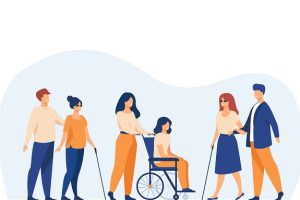
Africa and the rest of the world that have not been properly represented in the global system have repeatedly voiced strong called for comprehensive reform of the United Nations system, particularly the Security Council, to reflect today’s global realities. Central to this vision is the inclusion of Africa as a permanent member of the Security Council, a long-standing demand that he argues is essential for fairness, credibility, and legitimacy in global governance.
United Nations Secretary-General António Guterres has even described the current structure of the Security Council as outdated and unrepresentative of the geopolitical landscape of the 21st century. Created in the aftermath of World War II, the Security Council comprises five permanent members with veto power-China, France, Russia, the United Kingdom, and the United States-reflecting the power dynamics of that era. However, Guterres contends that this arrangement excludes large regions of the world from meaningful participation, most notably Africa, which comprises 54 member states of the UN.
He has repeatedly emphasized that Africa’s exclusion from permanent membership in the Security Council is a grave historical injustice. Speaking at high-level forums and during visits to the continent, Guterres has stated that reform is not just about institutional efficiency but about correcting power imbalances rooted in colonial history and systemic inequality. He has linked this issue to the broader call for justice and reparations for Africa, including addressing the legacies of slavery and colonialism.
The secretary-general has supported the African Union’s demand, echoed through the Ezulwini Consensus and the Sirte Declaration, which call for at least two permanent seats for Africa in the Security Council, with full veto rights, and five non-permanent seats. He believes such representation is critical to ensuring that African perspectives and interests are fairly represented in decisions on peace, security, and development.
His advocacy aligns with growing global support for Security Council reform, particularly among developing countries in the Global South. As geopolitical tensions and conflicts increase, many nations view Security Council reform as crucial to restoring faith in the multilateral system and preventing the marginalization of voices from Africa, Latin America, and other underrepresented regions.
Also, Guterres has consistently emphasized the urgent need for reparations to address the enduring legacies of enslavement and colonialism. In a recent speech in New York, he reiterated his call for Member States and the United Nations to work towards justice and reparations for Africans and the diaspora. Guterres acknowledged the “colossal injustices” inflicted upon Africa, including the transatlantic slave trade and colonialism, and expressed deep regret over these historical wrongs.
He emphasized that these injustices have been left unacknowledged and unaddressed for too long, leading to entrenched systems of racism and exploitation that continue to disadvantage African countries and people of African descent. Guterres highlighted that decolonization did not free African countries or people of African descent from the structures and prejudices that made enslavement and colonialism possible. He called for reparatory justice to heal these historical wounds and promote a more just and equitable future.
The Secretary-General’s stand align with the broader global movement for reparatory justice, which has gained momentum in recent years. In November 2023, the African Union and the Caribbean Community (CARICOM) established the Global Reparations Fund during the Accra Reparation Conference. This fund seeks reparations for slavery from former European colonial powers and aims to support initiatives that address the historical and ongoing impacts of enslavement and colonialism. The fund is based in Africa and operates as an autonomous entity, working in close cooperation with the African Union Commission. It complements other efforts, such as the CARICOM Reparations Commission, and focuses on advancing the campaign for reparations through various initiatives, including education, cultural restitution, and economic development programs.
One notable proposal within this movement is the “Heritage Voyage of Return,” introduced by Nigerian playwright and Nobel laureate Wole Soyinka. This initiative aims to facilitate the reconnection of the African diaspora with their ancestral roots through cultural exchanges and educational programs. It also includes the establishment of an Honour Gallery to house artifacts looted from the African continent, serving as a tangible acknowledgment of past injustices and a step towards cultural restitution. Soyinka’s proposal underscores the importance of cultural healing and the return of stolen heritage as integral components of reparatory justice.
The call for reparations is not limited to African nations. In April 2025, Colombia’s Vice President Francia Márquez, during the opening of the fourth session of the United Nations Permanent Forum on People of African Descent, called on former colonial powers to take responsibility for the historical wrongs of slavery and colonialism. She advocated for a global reparations fund and emphasized the need to address the enduring legacies of these injustices, which continue to affect communities of African descent, notably through systemic racism and lack of access to basic services like healthcare and education. Márquez’s statement reflects a growing recognition that the impacts of enslavement and colonialism are global in nature and require collective action to address.
The United Nations has also been actively involved in promoting reparatory justice. In 2022, during the International Day of Remembrance of the Victims of Slavery and the Transatlantic Slave Trade, Secretary-General Guterres highlighted the “colossal injustice” of the transatlantic slave trade and its lasting impact on Africa and people of African descent. He emphasized the need to acknowledge and teach the history of slavery and its consequences, stating that “the most powerful weapon in our arsenal is education.” The UN’s Remember Slavery Programme and UNESCO’s Slave Route Project aim to assist Member States in integrating lessons on the causes, manifestations, and far-reaching consequences of the transatlantic slave trade into school curricula.
Furthermore, the African Union has been proactive in advocating for reparations through the Accra Proclamation on Reparations. This proclamation calls for the establishment of a Global Reparations Fund, based in Africa, to support initiatives aimed at addressing the historical and ongoing impacts of enslavement and colonialism. It also emphasizes the need for a united front to reform global financial systems and structures to achieve a new global financial pact that is reparatory in nature and economically equitable in scope and practice. The proclamation highlights the importance of regional economic communities and civil society in promoting and sustaining linkages between various AU organs and advancing the reparatory justice agenda.
Despite these efforts, challenges remain in achieving reparatory justice. Some governments and institutions have resisted calls for financial reparations, arguing that contemporary states should not be held responsible for historical injustices. However, proponents of reparations argue that the enduring legacies of enslavement and colonialism continue to affect communities of African descent and that addressing these injustices is essential for achieving social and economic equity.
They emphasize that reparations are not merely about financial compensation but also about acknowledging historical wrongs, returning stolen heritage, and implementing systemic changes to dismantle entrenched structures of racism and exploitation.
The call for reparations for enslavement and colonialism is gaining momentum globally, with support from African nations, the Caribbean, and other regions affected by these historical injustices. Initiatives such as the Global Reparations Fund, the Heritage Voyage of Return, and the Accra Proclamation on Reparations reflect a collective commitment to addressing the legacies of enslavement and colonialism. While challenges persist, the growing recognition of the need for reparatory justice signals a shift towards a more equitable and just global society.
BY STAFF REPORTER
THE ETHIOPIAN HERALD WEDNESDAY 4 JUNE 2025




